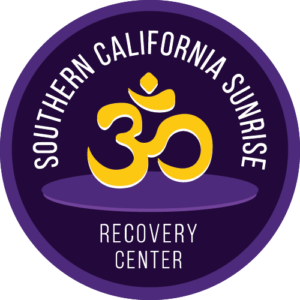The short answer is no, Xanax is not an opioid. Xanax, or alprazolam, is a prescription medication classified as a benzodiazepine, primarily used for treating anxiety and panic disorders. It works by enhancing the effect of neurotransmitters in the brain that help to reduce nervous tension and anxiety. Unlike opioids, which are typically used for pain relief and work by binding to opioid receptors in the brain to reduce the sensation of pain, benzodiazepines like Xanax have a different mechanism. They increase the efficiency of the inhibitory neurotransmitter gamma-aminobutyric acid (GABA), which has soothing and calming effects. This makes them practical for anxiety management but not suitable for pain relief.
While both Xanax and opioids have the potential for addiction and abuse, they differ significantly in their medical uses and effects on the brain. Xanax is often prescribed for short-term management of severe anxiety, and its use is usually carefully monitored due to its addictive potential. In contrast, opioids are mainly prescribed for managing moderate to severe pain. Understanding these differences is vital, as it helps appropriately prescribe and use these medications and informs patients and healthcare providers about their potential risks and benefits.
Understanding Opioids: Their Purpose and Effects
Opioids are a class of powerful drugs derived from the opium poppy plant or synthesized in laboratories. They are primarily used in medicine for their potent pain-relieving properties. When taken, opioids bind to specific receptors in the brain and spinal cord, as well as in other areas of the body, effectively blocking pain signals and providing relief. This makes them particularly effective for treating moderate to severe pain, especially pain that does not respond to other pain medications.
A significant aspect of opioid use is the potential for withdrawal when stopping the medication. Understanding how long opioid withdrawal lasts is crucial for those undergoing treatment for opioid dependence. The duration and intensity of withdrawal symptoms can vary greatly, influenced by factors such as the duration of opioid use, the specific opioid used, and the individual’s health.
Fentanyl, a synthetic opioid, is significantly more potent than many other opioids, which can lead to a more complex detoxification process. For those seeking information on this specific substance, it’s essential to understand how long it takes to detox from fentanyl. The detox duration from fentanyl can be influenced by various factors, including the level of dependency, the dosage used, and individual physiological characteristics.
However, the use of opioids carries significant risks. According to the Centers for Disease Control and Prevention (CDC), opioids were involved in almost 75% of drug overdose deaths in 2021, highlighting their high potential for dependence and abuse. This is mainly because, in addition to providing pain relief, opioids can also induce feelings of euphoria, leading to misuse. Regular use, even as prescribed by a doctor, can lead to physical dependence and, when misused, opioid addiction, overdose incidents, and death. The risk of addiction and overdose increases with higher doses and longer-term use. As a result, medical professionals are increasingly cautious about prescribing opioids, often preferring alternative pain management strategies.
Benzodiazepines: What They Are and How They Work
Benzodiazepines, a class of drugs to which Xanax belongs, are central nervous system depressants prescribed primarily for the treatment of anxiety insomnia, and sometimes for managing seizures and alcohol withdrawal. These medications enhance the effects of gamma-aminobutyric acid (GABA), a neurotransmitter in the brain responsible for regulating neuronal excitability and inducing calmness. By increasing GABA activity, benzodiazepines decrease abnormal brain activity, providing relief from anxiety and panic attacks.
The use of benzodiazepines, while practical, requires careful management due to their potential for dependence and withdrawal symptoms. According to a study published in the New England Journal of Medicine, long-term use of benzodiazepines can lead to tolerance, meaning that higher doses are needed to achieve the same therapeutic effect and physical dependence. Withdrawal symptoms can range from mild, such as increased anxiety and insomnia, to severe, including seizures and psychosis, especially if the medication is stopped abruptly. A study found that benzodiazepine misuse accounted for 17.2% of overall use, indicating a significant portion of users are not taking these medications as prescribed. This data highlights the importance of using benzodiazepines judiciously and under strict medical supervision, especially for patients with a history of substance use disorders.
The Risks of Xanax: Understanding Dependence and Withdrawal
Regular use of Xanax (alprazolam), a widely prescribed benzodiazepine, can lead to physical dependence and addiction. This risk is heightened in individuals with a history of substance abuse or addiction. Dependence on Xanax can develop relatively quickly, often within a few weeks of regular use, due to its potent effects on the central nervous system.
Withdrawal symptoms from Xanax can be particularly severe and, in some cases, life-threatening. These symptoms may include increased anxiety and panic attacks, insomnia, restlessness, muscle tension, and, in severe cases, seizures. A study reported that about 44% of chronic benzodiazepine users experience withdrawal symptoms when they reduce or stop their dosage. This underscores the importance of careful, medically supervised tapering of the medication.
Additionally, abrupt discontinuation or rapid dose reduction of Xanax can lead to acute withdrawal symptoms, which can be more intense and pose significant health risks. This is why it is critical for individuals using Xanax to do so under the guidance of healthcare professionals who can provide appropriate dosing schedules and support. Medical supervision is especially crucial for individuals with a history of substance use or mental health disorders.
Moreover, the risk of addiction and withdrawal is not the only concern with Xanax use. There is also the potential for cognitive impairment, impaired motor function, and increased risk of accidents, particularly in older adults. Long-term use has been associated with an increased risk of dementia in the elderly, as indicated in some studies. While Xanax can be an effective medication for managing anxiety and panic disorders, its use must be approached with caution due to the risks of dependence, withdrawal, and other potential adverse effects. Patients and healthcare providers must work closely together to ensure safe use and to explore alternative treatments when long-term management of anxiety symptoms is required.
Opioid & Benzodiazepine Treatment at Tres Vistas Recovery
At Tres Vistas Recovery, our expertise extends beyond opioid addiction to include treating benzodiazepine dependence, such as addiction to medications like Xanax. Recognizing the complex interplay between opioid use and benzodiazepines, we also address the challenging aspect of opioid withdrawal insomnia, which often accompanies detox from these substances. Our holistic treatment approach combines medical detoxification with comprehensive therapy and support to tackle both the physical and psychological facets of addiction.
Personalized treatment plans are at the core of our program, tailored to meet the unique needs of each individual. We incorporate a variety of therapeutic modalities, including cognitive-behavioral therapy (CBT), individual counseling, and group therapy, alongside other holistic approaches to ensure a balanced recovery process. Our focus is not only on helping our clients overcome addiction but also on equipping them with strategies for long-term wellness and sobriety.
At Tres Vistas Recovery, recovery from benzodiazepine and opioid addiction is a guided journey. We offer continuous support and guidance, ensuring our clients do not just survive the detox process but thrive in sobriety, with a strong foundation for a healthy, substance-free future.

Tracey Kane is an Associate Marriage and Family Therapist and Assistant Clinical Director at Tres Vistas Recovery. With over 11 years of experience in the field of addiction treatment, Tracey has dedicated her career to helping individuals struggling with substance abuse and mental health issues.












